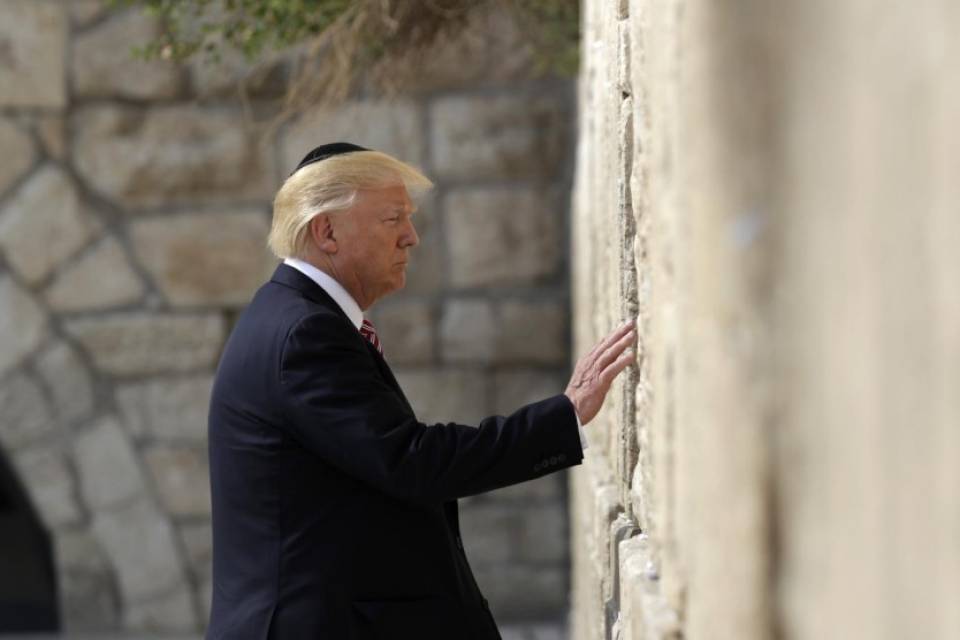Interview
Conte government disagrees with ‘name and shame’ strategy in the West Bank
The current Italian government, like the rest of the EU, has expressed opposition to the Trump plan for Palestine and Israel. But it also opposes the publication by the UN human rights council of a list of companies operating in the illegal settlements.

In the wake of the Trump-Netanyahu proposal for a “1.5-state solution,” the United Nations Human Rights Council has published a list of companies operating in the West Bank. We spoke with Italian Deputy Foreign Minister Marina Sereni about how the European Union views this publication and the Trump plan and what may be the next steps.
Deputy Foreign Minister Marina Sereni, the EU will have to respond to the Trump Plan. Perhaps it is no longer enough to reiterate its support for a two-state solution.
President Trump’s plan did have the merit of putting the Middle East peace process back on the agenda of the international community, after a very long stalemate. However, the timing and modalities of the presentation of the plan have raised a number of questions and provoked less than positive reactions, among the Palestinians and not only.
Europe is right to want to dig deeper into the provisions of the plan and to reiterate its own firm requirements: namely, the need to start from the UN resolutions and from the principle of two states, which the US plan itself mentions.
But we can’t stop there: the situation in recent years has gotten much worse, the Israeli settlements in the West Bank have grown, we are facing a humanitarian emergency in Gaza, Israel continues to be the object of attacks and the distrust between the parties is enormously high. That is why I believe it is necessary that the European Union, instead of writing an alternative plan, should exert more effort to create the conditions for a new direct negotiation between Palestinians and Israelis.
No peace is possible without an agreement that recognizes the rights of both peoples to have a state and to live in security. And the Jerusalem issue is too delicate and complex to be addressed unilaterally.
Luxembourg wants the immediate recognition of the State of Palestine. Does Italy support this proposal?
Italy has never been against this initiative as such. We have always believed that this step should be aimed at furthering the peace process. In my view, it seems appropriate that we should think about this together at European level. Just as I believe that Europe must support the process of reconciliation between the Palestinians and encourage the holding of new presidential and parliamentary elections in which the Palestinian citizens of the West Bank, Gaza and East Jerusalem would be able to participate.
The UN has published a list of companies that are operating in Israeli colonial settlements. Does Italy agree with this initiative?
Italy has always maintained a constructive and balanced approach in relation to the human rights resolutions presented by the Palestinian side at the Human Rights Council in Geneva. A few days ago, we received the first drafts of the texts that will be presented at this year’s session, and, in close coordination with the European members of the UNHRC, we are carefully assessing them.
That said, it is well known that our country, like the European Union as a whole, has always rejected any form of boycott against Israel, in particular the “BDS” (Boycott, Divestment, Sanctions) campaign. In this context, we have taken note of the publication of the database of companies operating in Israeli settlements in the West Bank.
In line with our EU partners, however, we have expressed our opposition to this publication, both because such an exercise would appear to exceed the High Commissioner’s powers and because it would cause commercial and reputational damage to those companies, which are operating within a legal framework, and which would be exposed to being “named and shamed,” thus making the database similar to a “black list.” Among other issues, the database risks being counterproductive for the Palestinians themselves, many of whom work and are employed at the listed companies.
Originally published at https://ilmanifesto.it/imprese-nelle-colonie-israeliane-no-dellitalia-alla-lista-onu/ on 2020-02-19
